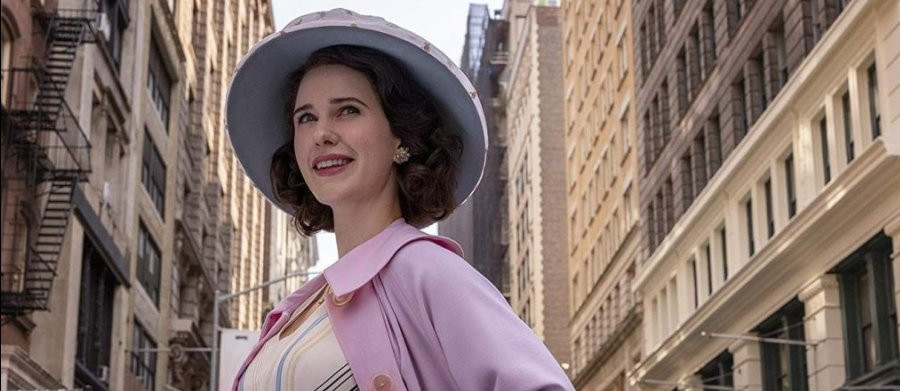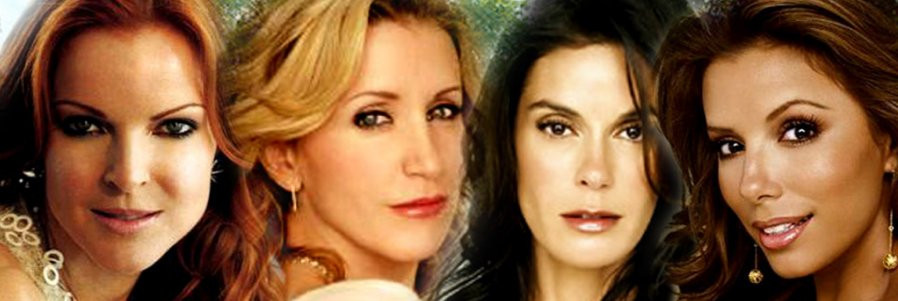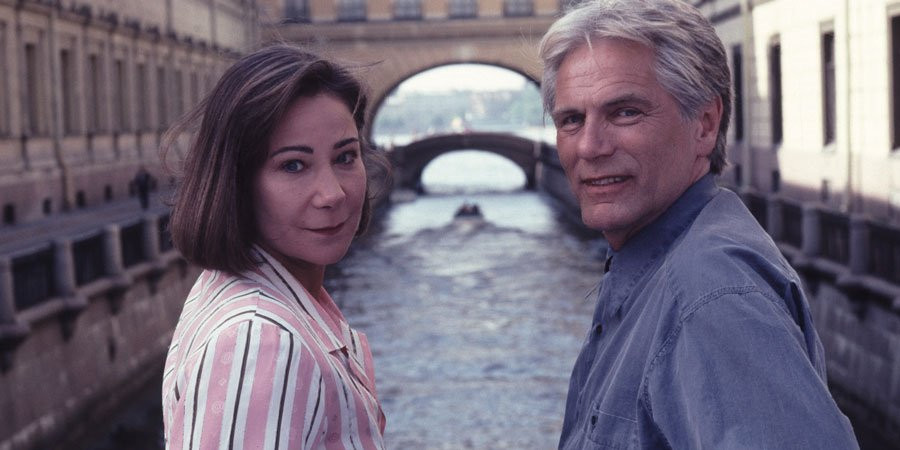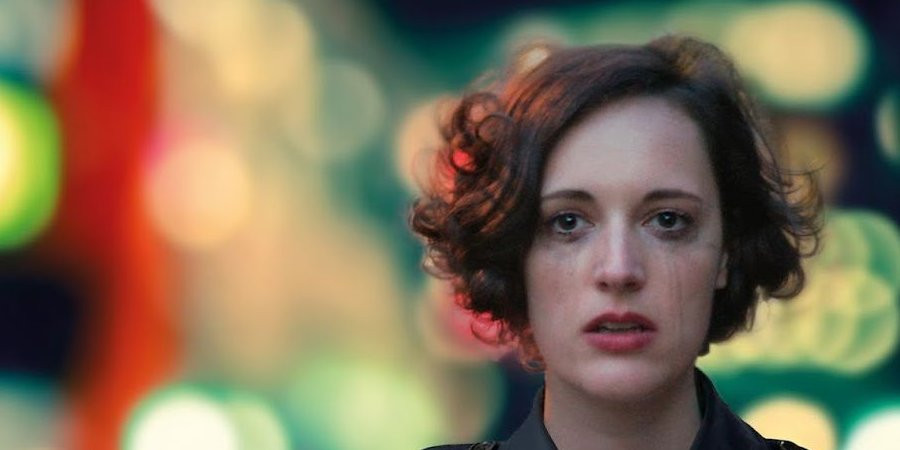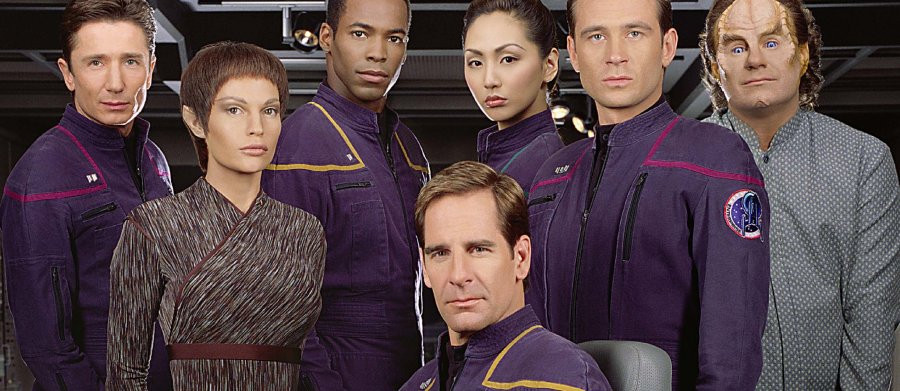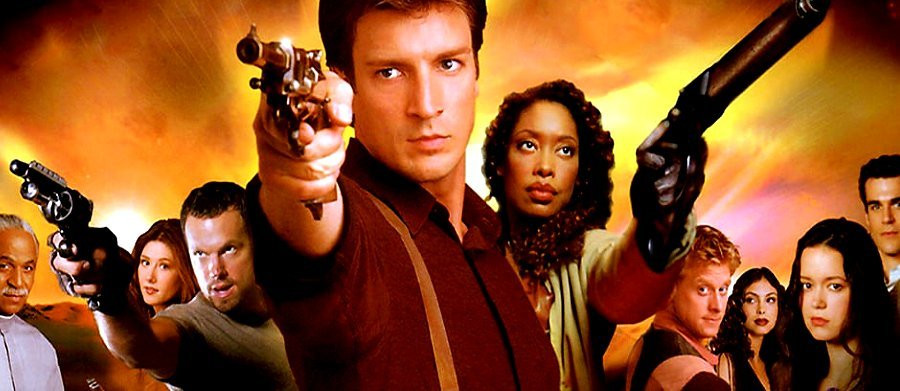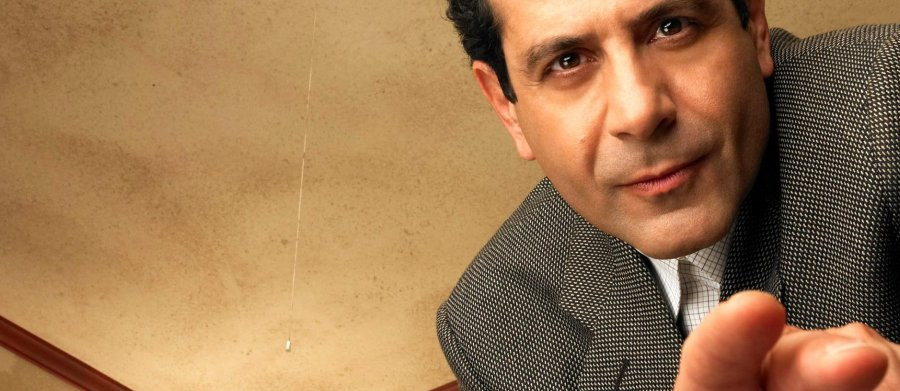
Monk
2002 - United StatesReview: John Winterson Richards
It is usually a mistake to judge shows we enjoyed in the past by our current standards and values. As individuals, we all grow up. There is no shame in admitting that we were once entertained by childish things that might not entertain us quite so much, or which we might find morally more questionable, at a later stage in life.
What is true of individuals can also be true of cultures. They grow up - or at least they evolve: whether that change is always for the better is a matter of debate. Either way, anyone interested in historical television is frequently going to see something which provokes a "They wouldn't make that today." In at least some cases, even those of us who do not think of ourselves as "politically correct" or "woke" must agree that it is no bad thing that they do not. Yet we should not deny that we still enjoyed those shows in the cultural context of their times, nor, with rare exceptions, should we be ashamed that we did.
For example, we have definitely made progress with greater public understanding of mental health issues. So it really is very difficult to imagine a show like Monk being produced now, at least in the same way. It was nevertheless very well made and hugely enjoyable.
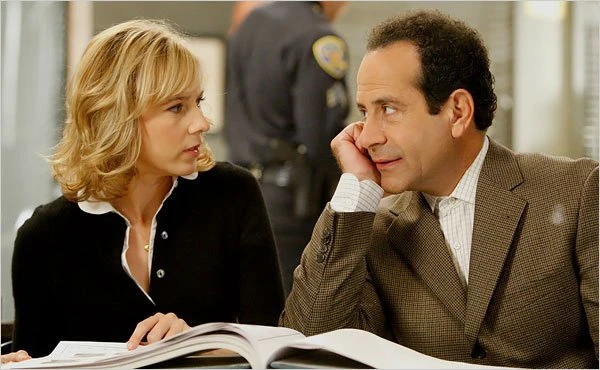
Adrian Monk is a Detective who left the San Francisco Police Department because Post Traumatic Stress Disorder following the murder of his wife which leaves him incapable of functioning in normal human society. He seems always to have had an obsessive-compulsive personality, but, as is the case with many who suffer from OCD, that was associated with an eye for detail - a great asset in his Police work. The trauma of his wife's death intensified his pre-existing condition, which manifests itself in 312 chronic phobias - being obsessive compulsive, he has made a list of them.
It gets worse. The show is a comedy drama in which much of the comedy comes from how Monk tries, and often fails, to cope those phobias in his new work as a private detective and occasional consultant to his old employer, the SFPD.
Written down like that, it looks absolutely horrible. It is not. Those who followed it when it was first broadcast - it was at that point one of the most popular shows ever on cable television - probably remember it as a quirky, sweet natured show with its own eccentric charm. So it was, and, in many respects, still is.
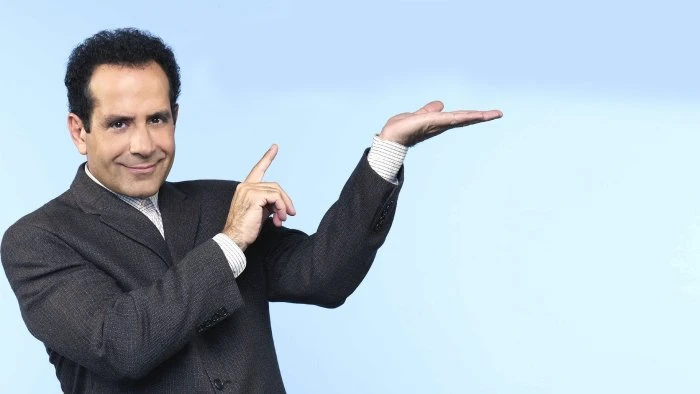
Three factors alleviate the gloom of its basic premise. The first is that Monk seems to have the greatest health plan in history. This includes frequent appointments with a psychiatrist - who, it must be said, seems to have pocketed his fees while making very little progress towards healing poor Adrian - and his own dedicated care assistant, who goes out with him on cases. We know that we are definitely in a fantasy world here.
Second, the style and format confirm that we are not supposed to take 'Monk' too seriously. It is strangely old fashioned, very much in the tradition of the old television "whodunnits" like 'Murder She Wrote.' Although there are some longer story and character arcs, most episodes are the standard self contained murder mysteries. Sir Arthur Conan Doyle and Dame Agatha Christie would be familiar with their construction. Most have unusual, often glamorous settings. Monk is not the sort of television detective who goes down to "The Projects" or wherever to solve the latest drug dealer shooting. His suspects and witnesses are usually rich white people. There is little emotional investment in most cases in spite of the fact that human beings are usually killed in them.
The third, and most important, factor that distances us from the unpleasantness of the basic concept is the amiability of the characters and cast.
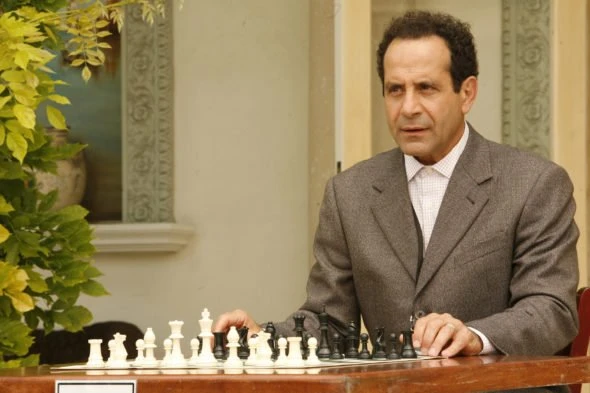
Tony Shalhoub is one of the best character actors of our time. In 'Monk' he is, unusually, given the leading role, and turns a potentially hazardous assignment into a triumph. He gets the tone just right, balancing the fussiness which gives the character his humour with the poignancy of his situation which gives him his dramatic power. He also hints that Monk, who is of Welsh stock, is a man of deep passion and perhaps his OCD is, at least in part, an attempt to control a side of himself that he fears.
It is an amusing performance, and sometimes a surprisingly moving one. No wonder he won a Golden Globe, two Screen Actors Guild Awards, and three of the show's eight Emmy Awards.
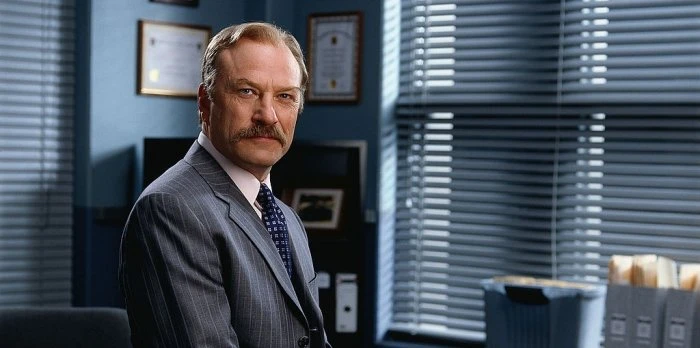
The best known name in the regular supporting cast is Ted Levine. As if wanting to distance himself as much as possible from his role in 'Silence of the Lambs,' in 'Monk' he plays a gruff Police Captain, a friend and former colleague of Monk's, who works with him on particularly difficult cases. He respects Monk, but is often exasperated by him and, initially at least, resents bringing in an outside consultant on Police cases. His rather naive young Lieutenant is played by Jason Gray-Stanford.
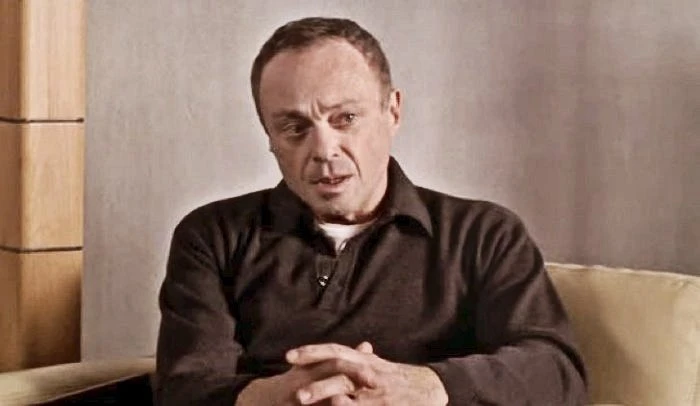
The show attracted a very strong guest cast. Stanley Kamel played Monk's psychiatrist for six seasons, but after he had a fatal heart attack - sadly both the actor and the character - he was replaced by a new psychiatrist, played by the great Hector Elizondo, who made a lot more progress with Monk's rehabilitation as the story drew a close and quirks became superfluous.
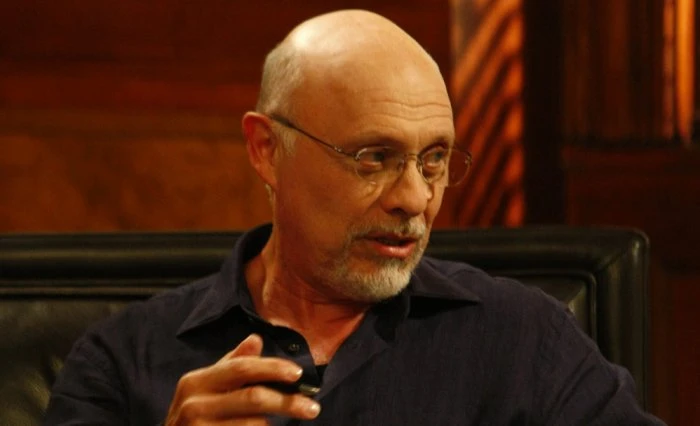
John Turturro won a Best Guest Actor Emmy for playing, in a nod to Mycroft Holmes, Monk's more intelligent older brother. He suffers from severe agoraphobia - one of the few phobias Monk himself has avoided. Dan Hedaya plays their father and Steve Zahn their half-brother.
In a great in-joke, Stanley Tucci, Shalhoub's co-star in the magnificent 'Big Night,' plays a method actor preparing to play Monk in a film version of one of his cases - and also got a well-deserved Guest Actor Emmy. Other familiar faces in guest roles include Glenne Headly, Bob Gunton, Virginia Madsen, Adam Arkin, Tim Curry, Sharon Lawrence, Sarah Silverman, Alfred Molina, Chi McBride, Sean Astin, David Strathairn, Dina Meyer, Casper Van Dien, Craig T Nelson, Danny Trejo, Jane Lynch, Larry Miller, Alice Cooper, James Brolin, Carmen Electra, Meat Loaf, Gary Cole, Malcolm McDowell, Jon Favreau, Reed Diamond, Laurie Metcalf, and Judge Reinhold. There is very much a "star of the week" feeling about many of these guest roles, again referencing the old traditions of murder mysteries of past decades.
However, the pivotal supporting role was always that of Monk's care assistant and de facto detective partner. That brings us to the Great Controversy - Sharona versus Natalie.
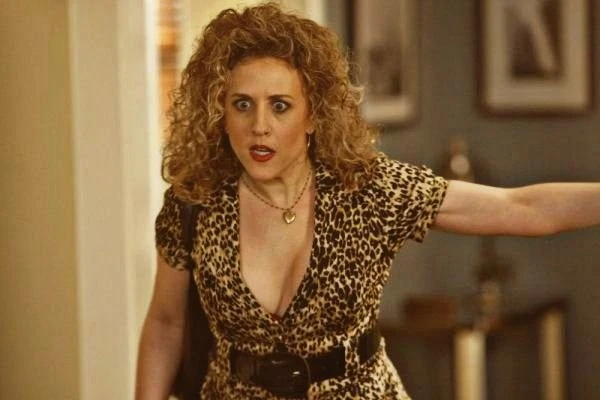
Sharona is Monk's first care assistant and a fully qualified nurse, played by Bitty Schram. She is a down to earth single mother from New Jersey with a truly disastrous love life. If she is dating someone in a given episode, there is a fair chance he will turn out to be the murderer. Nevertheless, she is professionally very competent. Monk credits her with saving his life after his wife's death and nursing him out of a catatonic state. They have a close, but strictly Platonic and frequently spiky relationship. She tries to encourage him to try things out of his comfort zone but usually ends up doing whatever he does not want to do for himself.
There was a pleasant and oddly credible dynamic between the two. It therefore came as a shock when Schram left mid way through the third season. The network said they wanted to "go in another direction," which seemed unlikely, given the success of the pairing. It was a lie. It appears that several members of the supporting cast were angling for more money and Schram was fired 'pour encourager les autres.'
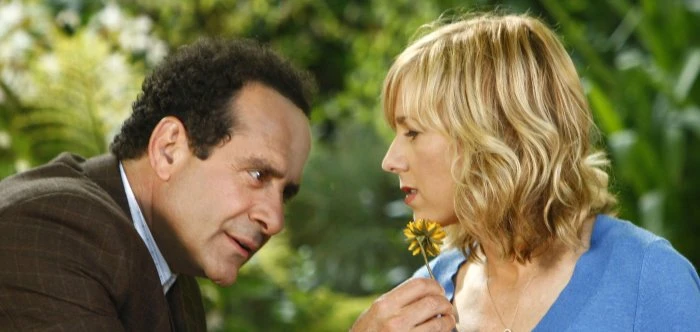
Traylor Howard was therefore given the thankless task of coming in as Schram's midseason replacement, a new character named Natalie Teeger. It was a sensible decision to make Natalie as different from Sharona as possible. She is the widow of a pilot killed in action in Kosovo and evidently of a higher social class than Sharona. She is less warm but more polite. She has a sexual chemistry with Monk which Sharona never had, but is later given a more "suitable" love interest to stop this becoming a distraction. She is not a healthcare professional: this being 'Monk,' we later find out that she had 17 previous menial jobs to make ends meet and it is a misunderstanding that leads, eventually, to her being hired as Monk's assistant.
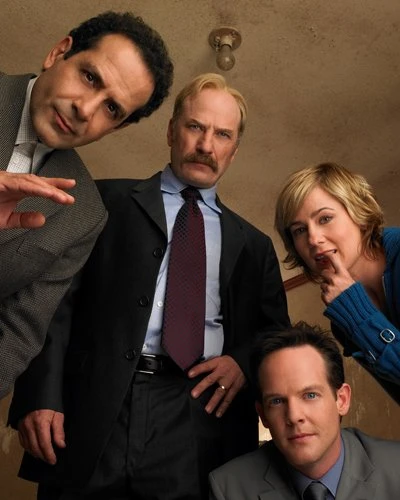
Howard coped well with a very awkward situation and built a character who became well established in her own right. Nevertheless, something was lost in the change and the circumstances left a bad taste. It was particularly damaging to a show that had traded on its likeability. There was healing of a sort when Sharona returned as a guest in a later episode and the character was eventually given a satisfying closure.
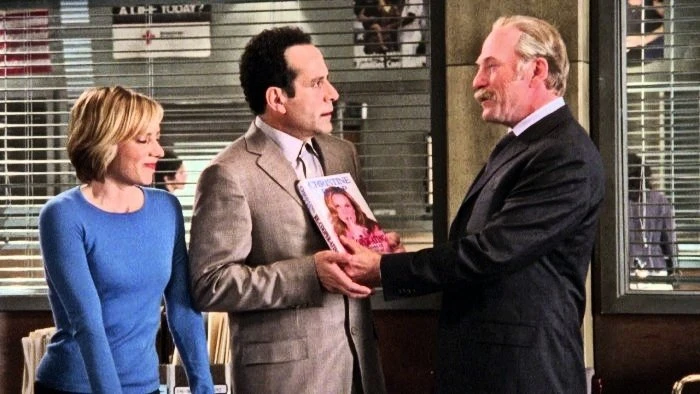
However, one suspects that, when people remember 'Monk,' they think immediately of the Monk-Sharona partnership, despite the fact that Natalie was his partner for over five seasons while Sharona was there for less than three - or, to put in terms Monk would appreciate, Howard is credited with 87 episodes where Schram has only 40 credits on the show. Of course, in the end, what mattered most was the character of Monk himself - and how he was played by one of the outstanding actors of his generation. Even if it is not exactly an accurate portrait of mental dysfunction, it remains an engaging performance one might still enjoy more than one should.
About the writer of this review:
John Winterson Richards is the author of the 'Xenophobe's Guide to the Welsh'and the 'Bluffer's Guide to Small Business,' both of which have been reprinted more than twenty times in English and translated into several other languages. He was editor of the latest Bluffer's Guide to Management and, as a freelance writer, has had over 500 commissioned articles published.
He is also the author of ‘How to Build Your Own Pyramid: A Practical Guide to Organisational Structures' and co-author of 'The Context of Christ: the History and Politics of Rome and Judea, 100 BC - 33 AD,' as well as the author of several novels under the name Charles Cromwell, all of which can be downloaded from Amazon. John has also written over 100 reviews for Television Heaven.
John's Website can be found by clicking here: John Winterson Richards
Seen this show? How do you rate it?
Seen this show? How do you rate it?
Published on September 14th, 2020. Written by John Winterson Richards for Television Heaven.


